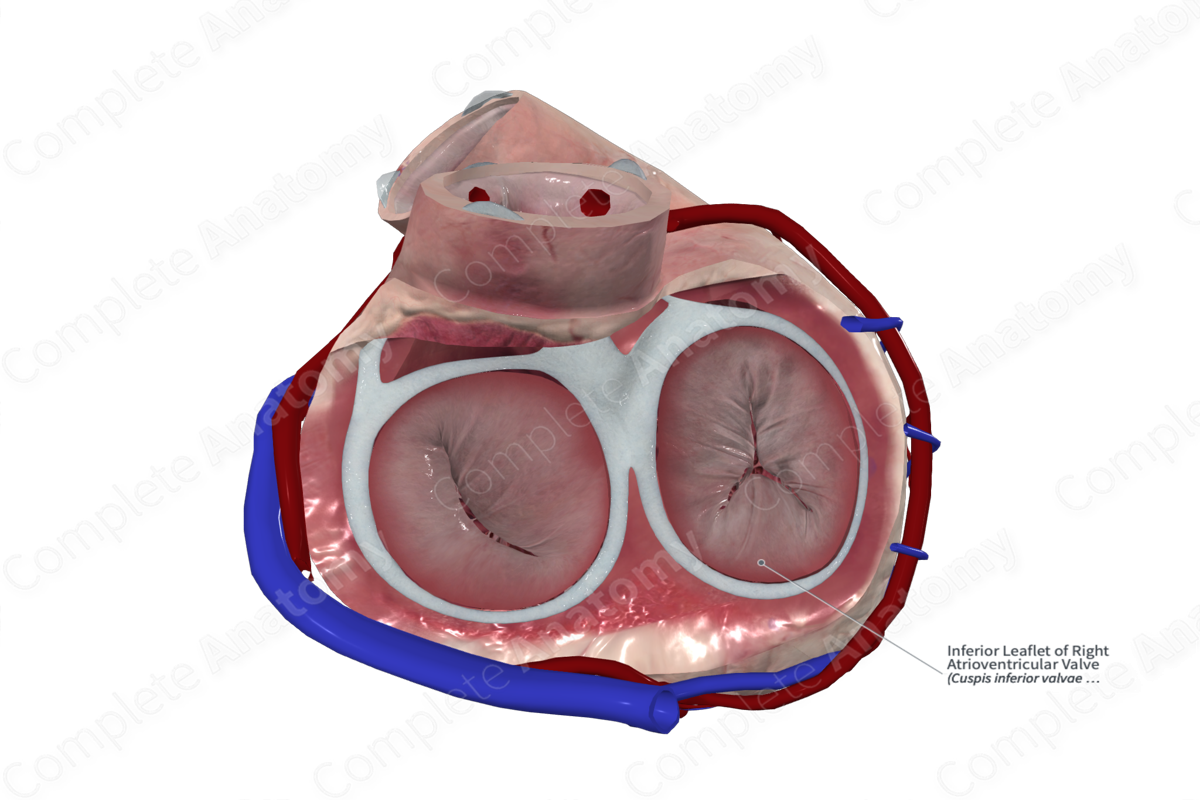
Inferior Leaflet of Right Atrioventricular Valve
Cuspis inferior valvae atrioventricularis dextrae
Read moreMorphology/Structure
The leaflets are named according to the regions of the orifice that they attach to and are called the superior, inferior, and septal leaflets. The leaflets have a fibrous core and are coated with endocardium. Each leaflet has a rough, clear, and basal zone. The rough zone corresponds to the region of the free margin where it provides an attachment for the chordae tendineae. It’s this region that comes into contact with the free margins of the adjacent leaflets when the valve is closed. The clear zone is smooth and more opaque and is the site of attachment of occasional chordae tendineae. The basal zone is thicker, due to increased collagen. It’s the region where the leaflets insert into the anulus.
Key Features/Anatomical Relations
The leaflets of the right atrioventricular valve are supported by and attached to chordae tendineae, which in turn attaches to the papillary muscles of the ventricular wall. The inferior leaflet attaches to the diaphragmatic surface of the atrioventricular junction and is connected to the septal and inferior papillary muscles via chordae tendineae.
Function
The inferior leaflet of the right atrioventricular valve works with the superior and septal leaflets to prevent retrograde blood flow into the left atrium during ventricular systole.
Learn more about this topic from other Elsevier products





